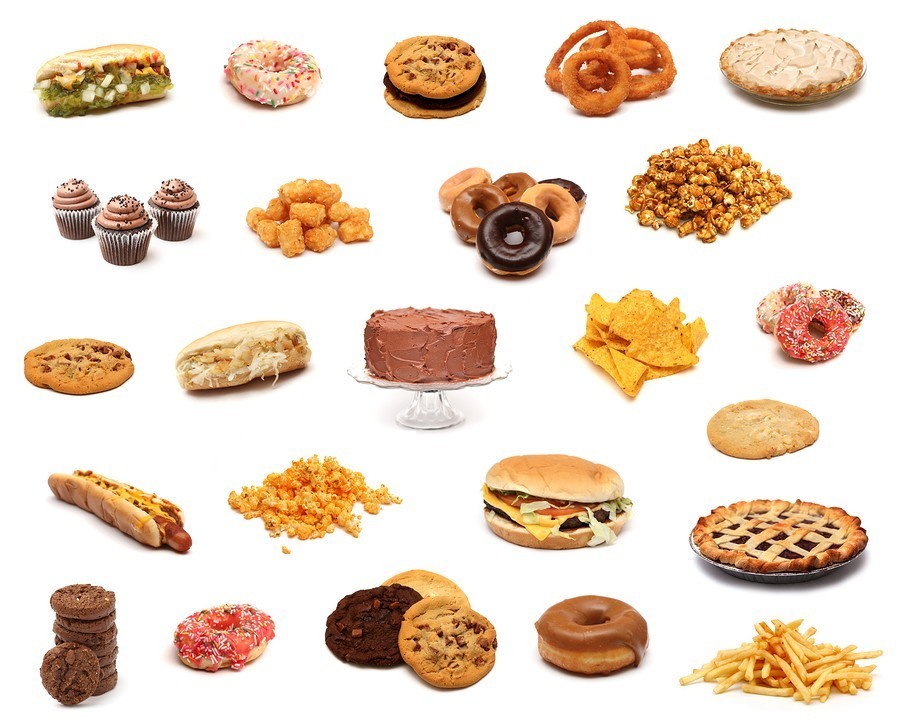Most Americans are probably aware that a steady diet of foods like chicken nuggets, candy bars and sodas are not a path to health, yet their low cost and easy access mean these foods are becoming a regular part of many people’s diets in the US and around the world. AICR’s research shows that highly processed foods with added fats and sugars contribute to weight gain and having obesity, thus raising the risk for cancers such as colorectal, endometrial and post-menopausal breast. Now, a population study explores whether there is a direct association between eating these ultra-processed foods and cancer risk.
Consumption of ultra-processed foods and cancer risk, published in the British Medical Journal used data from a French cohort called the NutriNet-Santé study, established in 2009, to look at associations between food, nutrition and health. For this study, researchers reviewed diet records from about 105,000 adults to determine the percentage of ultra-processed foods in their diets, using a food processing classification system called NOVA. The ultra-processed group includes foods such as sodas, sweet or savory packaged snacks, mass produced packaged breads and pastries, chicken and fish nuggets, sausages, and packaged instant soups and noodles.

NOVA food processing classifications:1. Unprocessed or minimally processed foods include foods such as fresh fruit and vegetables and juices, pulses (e.g. lentils, chickpeas, black beans), potatoes, mushrooms, meat, fish, poultry, eggs, milk, pasta, flour, nuts
2. Processed culinary ingredients include vegetable, seed and nut oils, butter, sugar, molasses, honey, maple syrup
3. Processed foods include canned vegetables, fruit and beans, cured and smokes meats, canned fish, cheeses, freshly made bread, salted or sugared nuts
4. Ultra-processed foods include carbonated drinks, packaged snacks, ice cream, chocolate, mass-produced packaged breads and baked goods, breakfast cereals, energy bars, margarines, processed cheese, sugared milk drinks, sugared ‘fruit’ yogurts, liquid meal replacements, sausages, hot dogs, instant soups, noodles, desserts, and frozen products like pies, pizza, poultry and fish nuggets and sticks
For the study, participants completed online 24-hour diet records every six months. The study authors put individuals’ diets into one of four groups based on how much ultra-processed food they consumed. Researchers then identified over 2200 cancer cases in the cohort during a five year follow up time.
After adjusting for smoking, physical activity, BMI, alcohol, family history and educational level, the scientists found an association between ultra-processed foods and risk for all types of cancer and for breast cancer specifically. For every 10 percent increase of ultra-processed foods in the diet, they found an increase of 12 percent in risk of overall cancer and 11 percent in risk of breast cancer.
The authors caution that these are associations and the findings need to be confirmed by other studies. But there are plausible ways these foods could contribute to cancer risk other than simply leading to weight gain and having obesity. A diet high in ultra-processed foods could lead to a poor nutritional status and, for example, be lower in foods that contain fiber which link to lower risk for colorectal cancer. It is also possible, say the researchers, that some additives in these foods could be culprits, though most evidence on the latter are limited to animal studies.
Although this is one of the first studies to look at a direct link between highly processed foods and cancer risk, you don’t need to wait for more research to eat a healthy diet that can help reduce cancer risk. One of AICR’s Recommendations for Cancer Prevention is to avoid sugary drinks and limit how many processed foods high in added sugar and fat you eat.
Research also shows that eating a diet rich in plant foods such as vegetables, beans, fruit and whole grains as recommended in AICR’s New American Plate, is cancer-protective. Sign up for AICR’s New American Plate Challenge, a program to help you make changes one at a time to eat smarter, move more, and work toward or maintain a healthy weight.
The study was funded by these public institutions of France: Ministère de la Santé, Institut National de la Prévention et de l’Education pour la Santé, Région Ile-de-France, Institut National de la Santé et de la Recherche Médicale, Institut National de la Recherche Agronomique, Conservatoire National des Arts et Métiers and Université Paris 13





